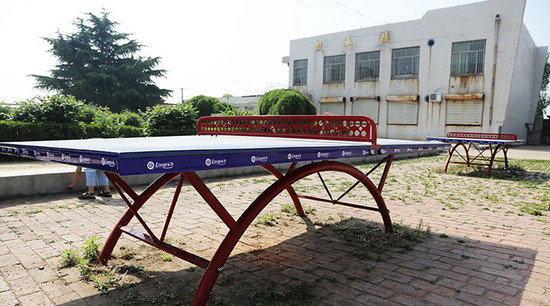On May 22nd 2014, Longrich Loving-family Ophthalmology together with doctors paid a visit to Jinan Luoer Primary School in Shandong province to examine children with strabismus or amblyopia and brought them loving products.
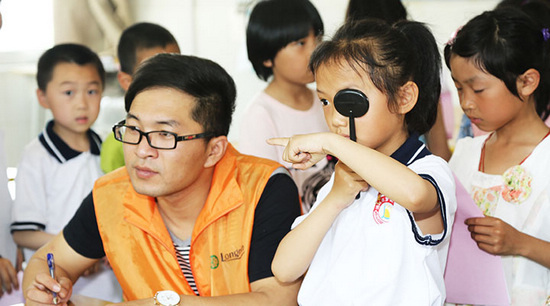
Volunteers drove 1.5 hours to Luoer Primary School located in Dangjia sub-district office. On site, they made a classroom a provisional eyesight examination room. As all children received a general eyesight examination a few days ago, the doctors mainly examined 90 children with poorer eyesight.
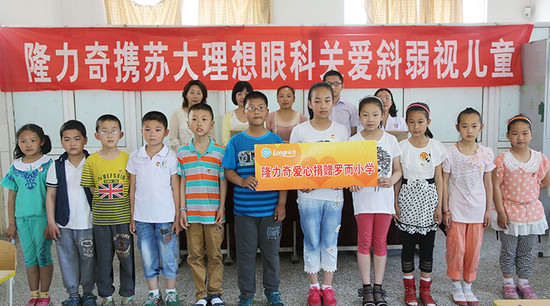
Ms. Liu Xia, the teaching director of Luoer Primary School, said among over 500 students who received the eyesight examination, over 90 of them are near-sighted accounting for nearly 1/5 of students in total. It is because these students are addicted to electronic devices or they are in inappropriate postures when studying.
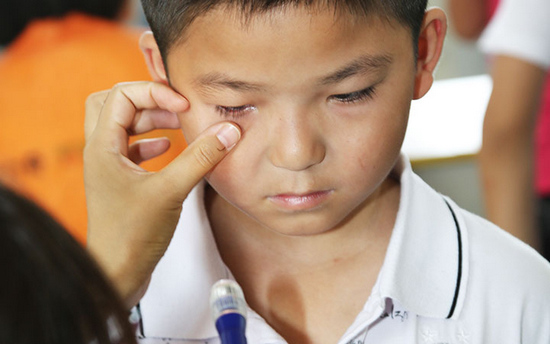
Therefore the school and parents are obliged to prevent children’s eyesight from getting poorer. Mr. Wang Haijun, the editing director of “Shandong Physical, Healthy and Artistic Education” Magazine said compared with children in the urban areas, children in the rural areas do not have strong awareness of protecting eyes. Some near-sighted students do not wear glasses or wear unsuitable glasses. Those with strabismus or amblyopia did not received timely treatment as they have no awareness of its severity and consequently have missed the best time for treatment.
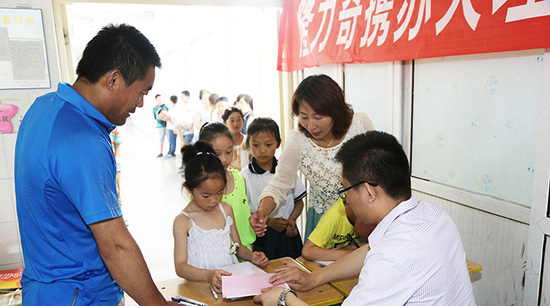
During the
communication with students, many of them were too addicted to electronic devices.
Some played with it for half a day without a rest, or play once their parents
were not beside them. Chen Yu, the director of Lixiang Eye Hospital of Soochow
University said there are congenital elements that lead to strabismus and
amblyopia and cannot be predicted, but can be cured if detected earlier. Bad
habits of using eyes lead to postnatal strabismus and amblyopia which can be
cured by wearing adaptive eye care glasses and recovery training.
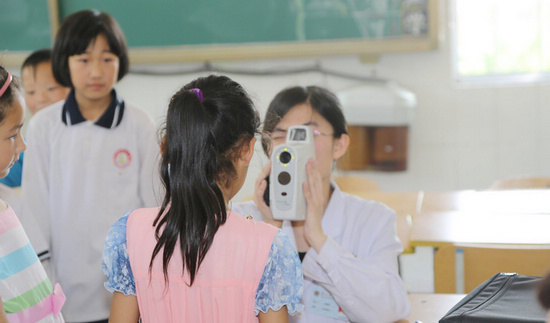
After the activity, Longrich Loving Foundation kept in touch with the school and parents to reexamine the students who might have strabismus and amblyopia to confirm the diagnosis, all students who are confirmed having strabismus and amblyopia will be offered free treatment.
